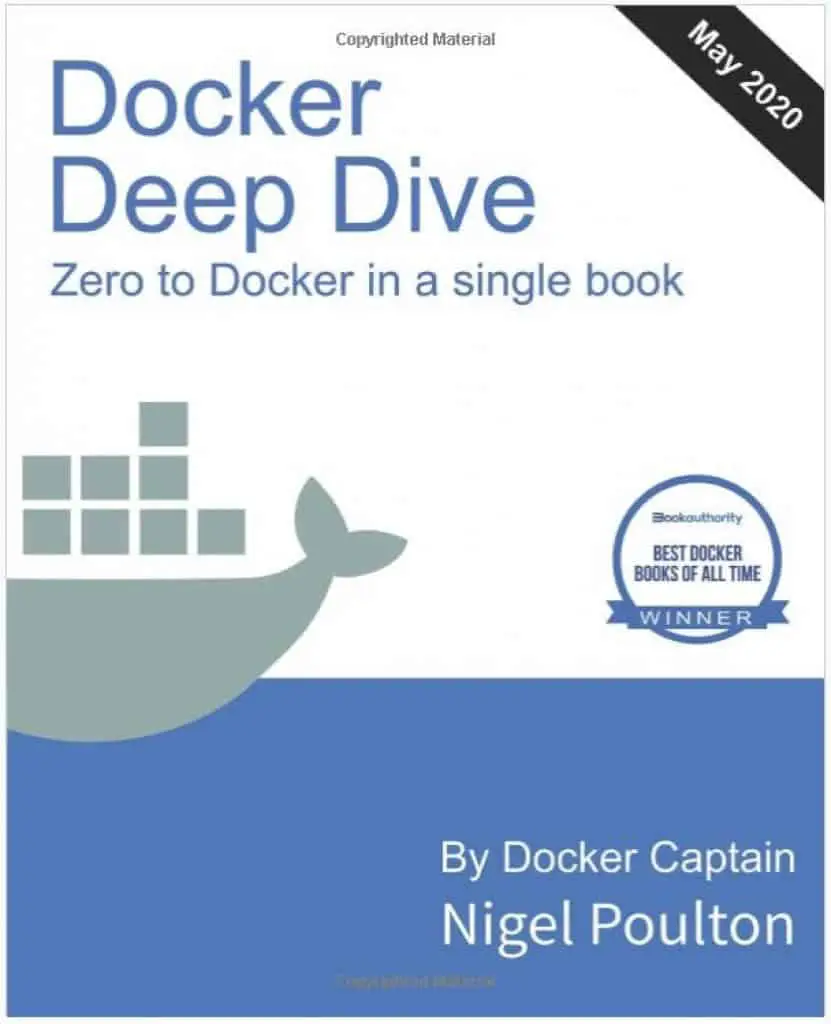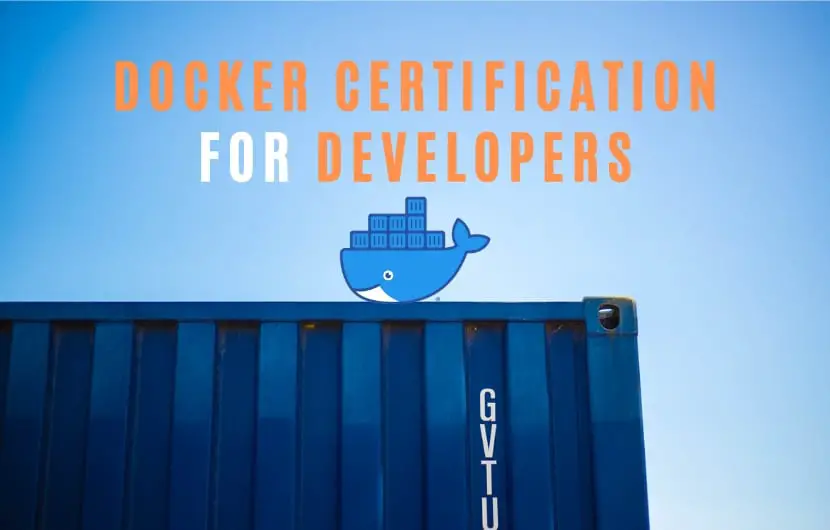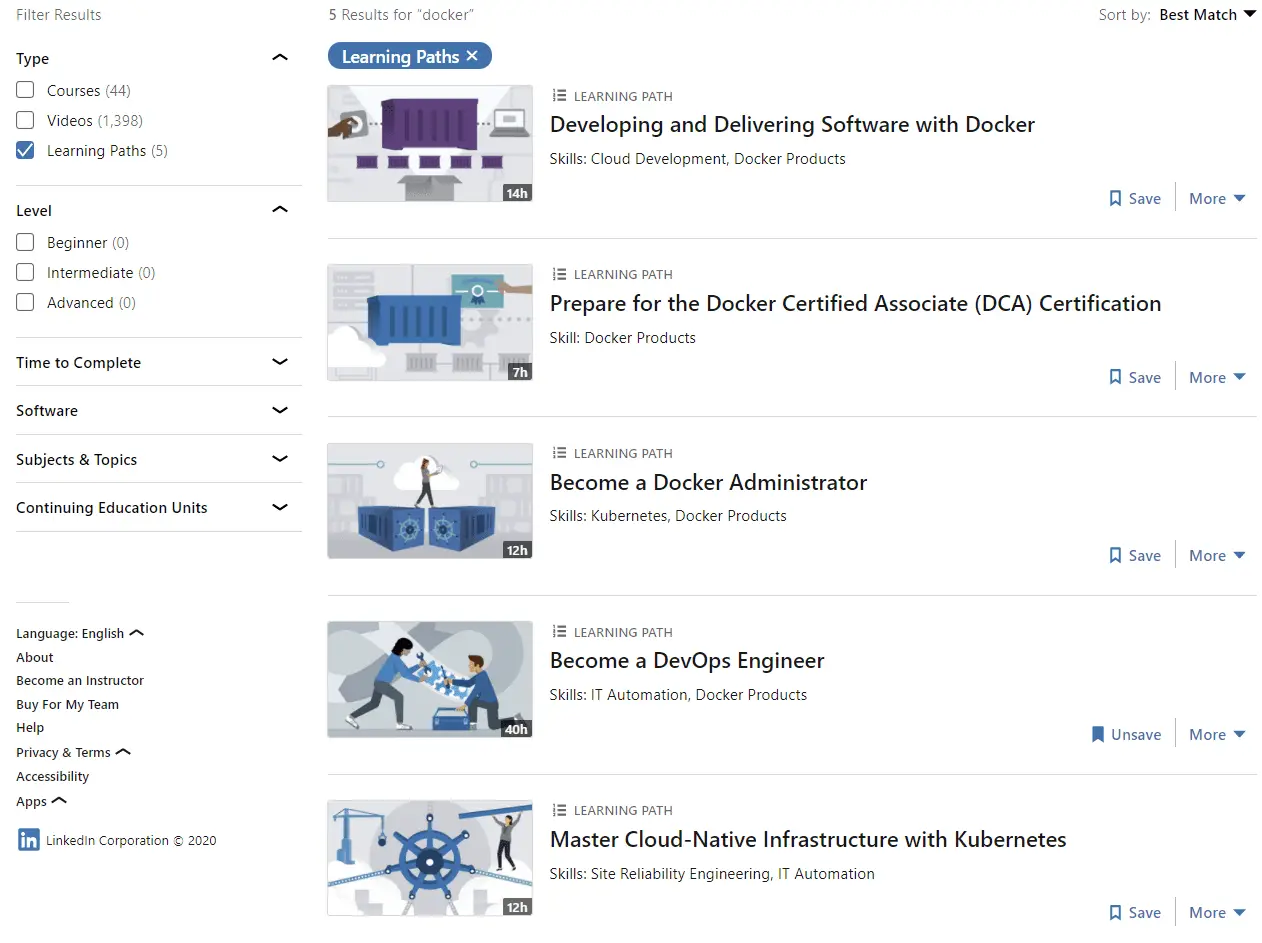Not long ago, to have one or another service running on our local machines, we had to pollute our local operating systems by constantly installing/uninstalling large amounts of various software.
Doesn’t matter what your main operating system is, I’m sure you had times when you were installing and configuring services such as Apache HTTP Web Server, MySQL database server, installing PHP, or Python, not to mention Java.
[wpsm_toplist]
Then, once in a while, you update some libraries/dependencies without even considering whether all the software you had previously installed will still be supported after the update. And, most often, some service falls over, so you end up scratching your head and thinking what the hell has just happened.
Then we started using Virtual Machines, such as VirtualBox or VMWare. That kind of solved the local operating system pollution problem, but what about the software portability?
Docker Certification for Developers
Here is where the Docker comes into play, which solves all the mentioned issues. I’m sure you know what Docker is, so I won’t be explaining it here. Now, why is the Docker certification important to developers? Is it important at all?
Imagine you passed the Docker Certification (DCA) exam one day.
So what happens next is this: nothing.
Your salary in the current job won’t probably increase. Most likely, your future employer won’t require you to have this exam passed either.
Some people think that the bunch of certificates (including the Docker certification) that someone brings on the table when applying for jobs is a joke.
So, why Docker Certification is valuable to developers?
Forget about what other people on forums say about the certifications. Especially ignore those who say that the highly certified professionals look funny or something like that.
Why? Well, because no certification exam is easy nowadays unless you are already an expert in that technology or a programming language, so you are planning to take the exam for the sake of the official document to prove your knowledge. So what is humorous about it?
Feel free to call yourself a pro after clearing the Docker certification exam.
Good developers always go into the nitty-gritty details when coding or working with the technologies. While others, the ordinary devs, just google the answer and do a copy-paste and see if it works, without going deep into understanding why it works and why not.
So, if you are one of those good developers, and if you want to master the Docker thoroughly, you should definitely take the Docker certification exam.
Another benefit you will get after nailing the Docker certification exam is the recognition world-wide. You’ll get a special code that you will be able to share with anyone asking for it, so then they can use it to verify whether you’re not a liar and really passed the exam. Or, you can include it in your resume as well.
Last but not least, you will have an exclusive access to various conferences that are for certified-only professionals. Imagine how beneficial it can be to you in your professional career. In the events like these, you’ll make so many authoritative connections so others could only dream of (Nigel Poulton?).
What is the Docker Certification Path
At the time of writing this article, there’s only one Docker certification available. The preparation for it is quite straight-forward. What I mean by that is that the requirements are clearly defined, so you need to make sure you know all the details.
First, let’s have a look at the exam requirements and what you should be expecting to be asked during the exam.
| Domain | % of Examination |
| Orchestration | 25% of your grade |
| Image Creation, Management, and Registry | 20% of your grade |
| Installation and Configuration | 15% of your grade |
| Networking | 15% of your grade |
| Security | 15% of your grade |
| Storage and Volumes | 10% of your grade |
So how do you prepare for all that…?
The short and simple answer is — study hard. There are four things I would recommend you to do before booking the exam.
#1 Nigel Poulton
No, it’s not a book. Well, kind of. He’s a Docker encyclopedia. Encyclopedia that walks. Have you heard of him yet?
When I first heard of Docker containers, and when I first started learning about Docker containers, application containerization, etc., he was the first guy that I was learning it all from. No offense to any other professional who also knows Docker very well, but I think Nigel Poulton is the best of the best. His courses are so engaging, very well explained, and he’s got a good sense of humor, which makes the learning experience so awesome.
Here’s a sneak-peak to what you will hear in the courses. The video is from 2016, I’m sure these courses have been updated by now anyway. But here’s who you will be learning from:
[wpsm_video]https://www.youtube.com/watch?v=ZZ-KnBmaJP0[/wpsm_video]
There’s a big chance that the Docker will only be just the first step in your journey towards becoming a DevOps engineer or preparing for the Kubernetes exams. Nigel Poulton is also a Kubernetes trainer. Bear that in mind.
Look here how many courses Nigel Poulton has authored here at Pluralsight.
#2 Nigel Poulton
No, it’s not a mistake. Nigel Poulton again. This time — his book, that you can find on Amazon (search for Nigel Poulton, you’ll see the Docker Deep Dive book). Feel free to explore the table of contents of this book, and I’m sure you’ll make a good decision!

#3 Official Docker Documentation
No less important, obviously, and I’m sure you’ll be referring to this official Docker documentation many times while studying for the Docker certification and after passing it. It’s the most up-to-date resource you will ever find on the Internet.
The awesome documentation is here.
#4 Build some interesting stuff using Docker
No matter what programming language or framework is your main one, whether it’s Java, C# and the .NET Core, PHP, JavaScript, React, Angular, or NodeJs — you can build a couple of applications and make sure to run them in the Docker containers.
As part of your preparation for the Docker certification exam, you can try and build a Docker management tool with UI, something like the Portainer. This kind of project will allow you to gain even more understanding of the Docker APIs.
Last but not least, you can build your own CI/CD pipeline using Jenkins within the Docker containers, or, as an alternative to Jenkins, using TeamCity.
Docker Learning Path on Pluralsight
In this Docker Learning Path on Pluralsight, you’ll find 44 hours of pure goodness. This is something that every developer who is learning Docker should watch. If you will decide not to prepare for the Docker exam (DCA), but instead go and master the technology without getting certified — this learning path is for you. If you asked, how long it would take to learn Docker, I would say, it will take you 44 hours of watching the courses + time you choose to spend on building stuff.

Here’s what you are about to find in this whole learning path:
[wpsm_list type=”arrow”]
- Docker and Kubernetes: The Big Picture. If you are not familiar with Docker yet — no worries, this is where you’ll become very good friends with it.
- Getting Started with Docker. Self-explanatory. Hands-on!
- Getting Started with Docker Swarm Mode. This is one of the exam objectives. You’ll get familiar with the Docker Swarm here. To be honest, I got way more knowledge of Docker Swarm than I expected.
- Securing the Docker Platform. Self-explanatory as well. Also, one of the objectives of the exam.
- Getting Started with Docker on Windows. In case you are a Windows user (or more Windows than the others).
- Docker Networking. All you need to know about Docker Networking. One of the objectives of the exam.
- Implementing a Self-hosted Docker Registry. This course will give you a lot of knowledge that’s going to be useful in the exam. After this course, I’ve implemented my CI/CD using TeamCity. Really useful course.
- Securing Docker Container Workloads. Self-explanatory, one of the exam objectives also.
- Managing Docker Images. The Docker essentials. No step further. One of the exam objectives.
- Managing Load Balancing and Scale in Docker Swarm Mode Clusters. One of the exam objectives. Useful in real-world jobs.
- Docker Deep Dive. I’ll leave that one to check for yourself. Lots of material for the exam.
[/wpsm_list]
Docker Learning Paths on LinkedIn Learning
Recently I found myself spending more and more time learning on the LinkedIn Learning platform. More than I used to spend on Pluralsight. That’s out of the scope of this article, but it looks like Pluralsight started pushing a lot of video content from various conferences instead of the hands-on courses. I’m not saying the conference content is not useful. What I’m saying is that I usually prefer the hands-on content instead, so can I learn the practical stuff and see the actual demo of how the stuff is implemented.
[wpsm_box type=”info” float=”none” textalign=”left”]
Important: LinkedIn Learning currently offers a 30-days free trial (which can be canceled anytime, no questions asked) that gives new users access to all the course library, certificates, LinkedIn Premium, and CPE credits! So don’t miss out!
[/wpsm_box]
[wpsm_button color=”btncolor” size=”big” link=”https://iqunlock.com/review/li-learning-search-of-docker-learning-paths/” icon=”none” class=””]Activate 1-Month FREE trial[/wpsm_button]
I would strongly encourage you to have a look at these LinkedIn Learning paths for learning the Docker containers technology.
[RH_ELEMENTOR id=”7512″]
Docker Certification for Developers – Is It Worth It
By looking at the exam objectives, I’m sure you could relate a lot of things to what you are doing in your daily job as a developer. If you are using Docker in your daily job, then you definitely:
- Use Docker Images
- Use Docker Networking
- You want to keep your containerized applications secure
- Use Docker Volumes and storage to persist the application data
- Maybe even using the orchestration, such as Docker Swarm or Kubernetes (or Apache Mesos?)
This is what the exam is all about! So, is the Docker Certification worth it for developers? Hell yes.
You may think that the Docker is more for DevOps engineers than Developers, but hey, could you become a DevOps without first knowing the hard life of a developer? And by the way, Docker is not only for DevOps. I am using Docker every single day in my daily job. The only way to become a master of Docker is to prepare for the Docker certification. You can skip taking the actual exam, but if you’ve learned all the stuff, why not book an exam? Will the Docker certification become a burden to you or damage your reputation? I don’t think so.


